World War II Chronicle: December 29, 1942
Click here for TODAY’S NEWSPAPER
Maj. Gen. Mark Clark’s secret submarine operation to secure French cooperation in Operation TORCH has been discussed in previous posts. Clark is pictured on page five with the three officers that accompanied him to his meeting in Cherchell, Algeria. We have already mentioned Navy captain Jerauld Wright. Also participating was Brig. Gen. Lyman Lemnitzer, who served as a coastal artillery officer before becoming Lt. Gen. Dwight Eisenhower’s Assistant Chief of Staff during the North African campaign. He will later serve on the teams that negotiate surrender with Italy and Germany. Lemnitzer commands the 7th Infantry Division during the Korean War, and he is selected by Pres. Eisenhower to become the fourth Chairman of the Joint Chiefs of Staff. Before retiring, he is named NATO’s Supreme Allied Commander Europe.
While there is not an official Joint Chiefs until 1949, Adm. William D. Leahy became Chief of Staff to the Commander in Chief in July 1942 and will serve in that position until 1949. The current “Joint Chiefs” are Leahy, Army Chief of Staff Gen. George Marshall, Chief of Naval Operations and Commander in Chief of the United States Fleet Adm. Ernest King, and Chief of the Army Air Forces Lt. Gen. “Hap” Arnold.
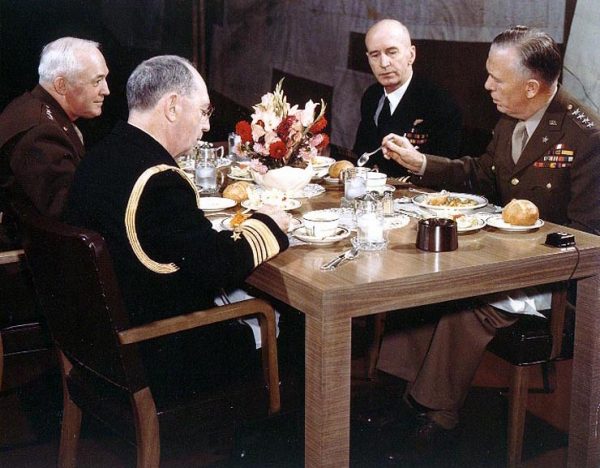
What are the men who become Joint Chiefs Chairman up to now? Here are the ones who served during the Second World War:
- Omar Bradley
- Arthur W. Radford
- Nathan F. Twining
- Lemnitzer
- Maxwell D. Taylor
- Earle G. Wheeler
- Thomas H. Moorer
- George S. Brown
- David C. Jones
- John W. Vessey Jr.
Maj. Gen. Bradley recently handed over command of the 82nd Airborne Division to Maj. Gen. Matthew Ridgway and currently heads the 28th Infantry Division. Capt. Radford is currently stateside, refining the training program for Naval aviators. Next year he is promoted to rear admiral and given a carrier division command. Twining, a first sergeant in the Oregon National Guard before his nomination to the U.S. Military Academy, serves as chief of staff for Allied air forces in the South Pacific. Next next month he is named commander of the Thirteenth Air Force.
Taylor just pinned on his first star and is chief of staff for the 82nd Airborne. Lt. Col. Wheeler enlisted in the District of Columbia National Guard at 16 before he attended West Point. He currently serves in the 36th Infantry Division. Lt. Cmdr. Moorer flew fighters before the war, but on Dec. 7, 1941 was flying seaplane patrols. He was shot down off the coast of Australia in February, and the ship that rescued him was sunk the same day. He earned the Distinguished Flying Cross in May for evacuating wounded men. Capt. Brown recently arrived in England where he will fly B-24s for the Eighth Air Force’s 93d Bombardment Group. Jones dropped out of college in April to become an aviation cadet. First Sergeant Vessey is fighting with the 34th Infantry Division in North Africa.
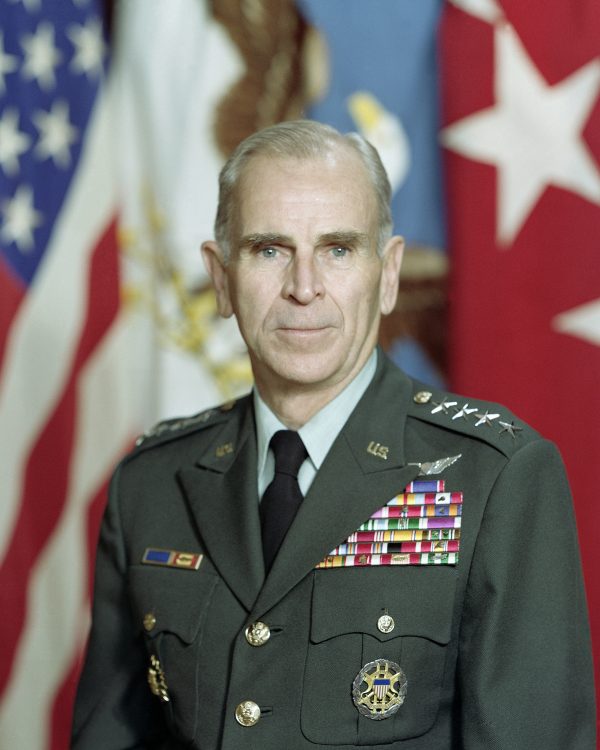
Things that happened 80 years ago can all seem so impersonal and unrelated to us. Virtually everyone discussed in Chronicle posts have passed away, but the lives of these men do overlap with ours. Vessey was selected by fellow World War II veteran Ronald Reagan. Vessey’s successor in 1985 was Adm. William J. Crowe, who was succeeded by Gen. Colin Powell in 1989…
Sports section begins on page 16… George Fielding Eliot column on page 41
Roving Reporter by Ernie Pyle
ORAN, Algeria — Yesterday I survived a tour of 150 miles in a jeep.
After 150 miles in a jeep it takes you 24 hours to stop vibrating. At the hospitals they tell me they’ve even had soldiers down in bed after riding all day in a jeep. So I feel pretty tough and proud of myself.We made a grand tour of American camps. I went along with a couple of security officers, whose job it is to set up and supervise security detachments in each camp. By security is meant keeping silent about military secrets, and watching for snakes in the grass such as Axis sympathizers and agents.
The security officers have a terrible job because they say Americans simply aren’t security-minded — we won’t keep our mouths shut, and we insist on trusting everybody. They say the French practice better security in peacetime than we do in wartime.
We stopped at the first airport and I ran into some of my fighter-pilot friends that I wrote about from Northern Ireland.
One of them had an arm in a cast. I immediately visualized a good thriller column, but it turned out he had merely fallen off the wing of his plane and broken his arm, the unromantic cur.
Then we stopped at an anti-aircraft gun set in a hole in the ground, and talked to Sgt. John Muir of Chicago. He said that if those Spitfires flying about 2,000 feet overhead were enemy planes they would be dead ducks.
The we stopped at a chateau way out in the country and had lunch with a couple of generals. I have lunch with some general at least once a week to keep up my social standing and my dignity. One can’t always be seen with privates, you know.
Afterwards we hit a big tent hospital, just being set up. Three I ran onto Lt. Dick Alter and Nurse Katie Bastadiho, both of New York, who came down on the same boat with us. They’re all crazy about living out under canvas. Katie says she has been washing her feet in her steel helmet, and it turns out her feet are bigger than her head.
We made quick stops at a supply depot full of railroad rails and at an engineer company that is building some roads. Finally we would sit up at Sidi Belad Bes, home of the famous Foreign Legion. Somehow or other we got acquainted with a Major Fuzeau of the Foreign Legion and sat with him for an hour at a sidewalk cafe, though the major spoke no English and we no French, at least hardly any.
We spent the first 15 minutes asking the major such primary questions as how old he was, whether he was married, how long he had been in the legion, and what his native city was. That exhausted our vocabulary, so we spent the last 45 minutes complimenting each other for our hospitality, extending hands across the sea, touching our hearts, and recalling wonderful Franco-American incidents of the last war.
The reason I know we were doing this is that the major kept saying, “Quatorze dix huit,” which I happen to know means “fourteen-eighteen,” and those of course were the war years. We just assumed from his gestures that he was telling us brotherly-love incidents. The major actually was about the most hospitable person I’ve ever met. We’re going back another day, and he’s going to show us all over the place.
On the way back we put in at a place where American tank crews are teaching Frenchmen to run our tanks. They are camped way out on a sloping hillside, on ground covered with sagebrush exactly like the hillsides in the American west. The tank boys work from daylight to dark when they’re on the move. They work all night, too, for the ground crews haven’t arrived and they have to do their own repairing.
They are really roughing it. It’s cold out there at night, and they sit around bonfires before going to bed in their little tents.
They were the first troops into Oran, but they’ve never been back to the city since. For some reason they aren’t allowed to go there on leave. Even their officers think it’s ironic that they captured the city and no can’t go into it.
It was long after dark when I left the tank boys. Fortunately there is no blackout here and you can drive with headlights on. Even so we almost spilled ourselves a couple of times skying around Arabs who loomed up suddenly with immense bundles of sticks on their backs.
We lurched back to Oran at 50 miles an hour, deeply wind-burned and feeling exactly like men who had seen practically all there was to see. Yet we hadn’t the tiniest fraction of what we have actually got around here already.
The Flying Fortress Pyle mentions could be a B-17F (serial number 41-24371) which originally belonged to the Royal Air Force, but was transferred to the 301st Bomb Group’s 353rd Bomb Squadron. At this stage of the war, this plane was operating out of Biskra, Algeria. Devils from Hell will be shot down near Palermo, Italy on June 3, 1943. All aboard are lost. It is not known whether any of the crew referenced above were on the mission.
Evening star. (Washington, D.C.), 29 December 1942. Chronicling America: Historic American Newspapers. Lib. of Congress.
https://chroniclingamerica.loc.gov/lccn/sn83045462/1942-12-29/ed-1/
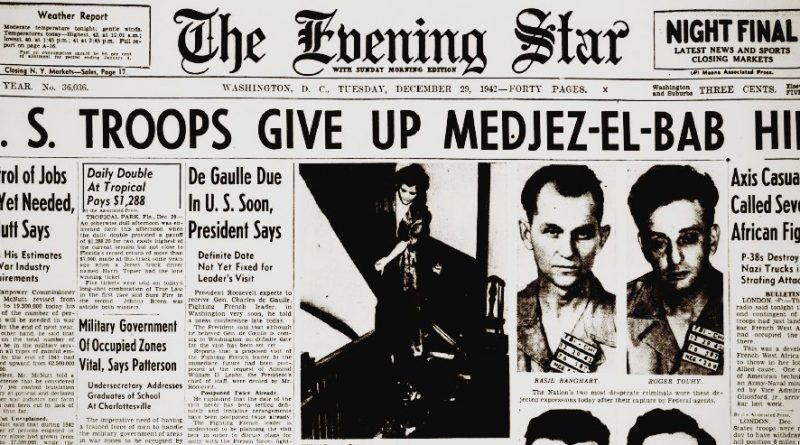
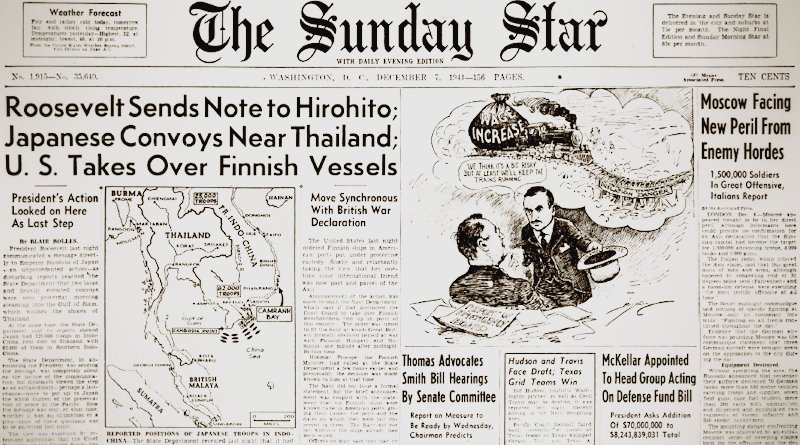
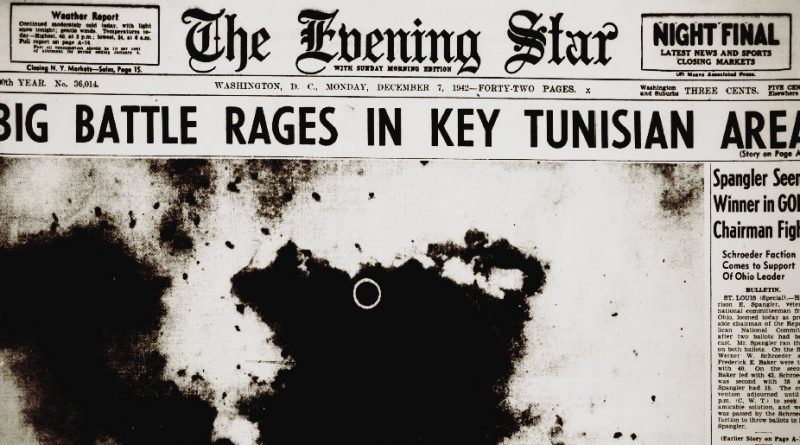
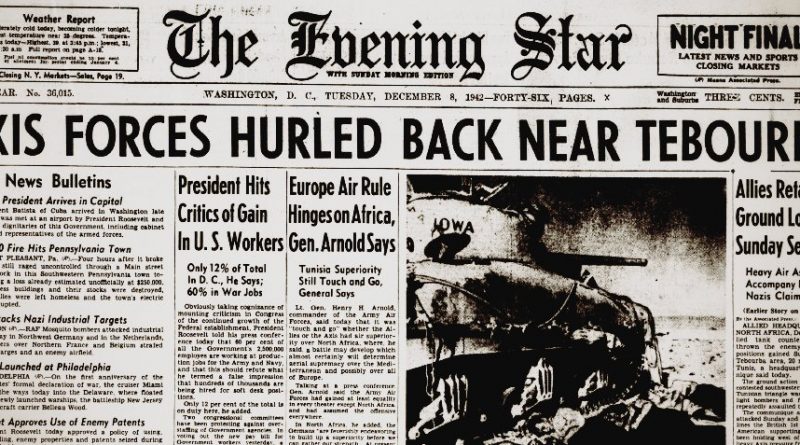
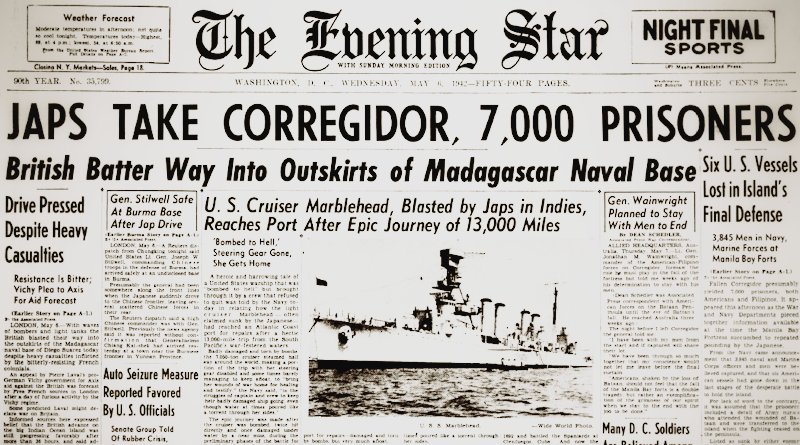
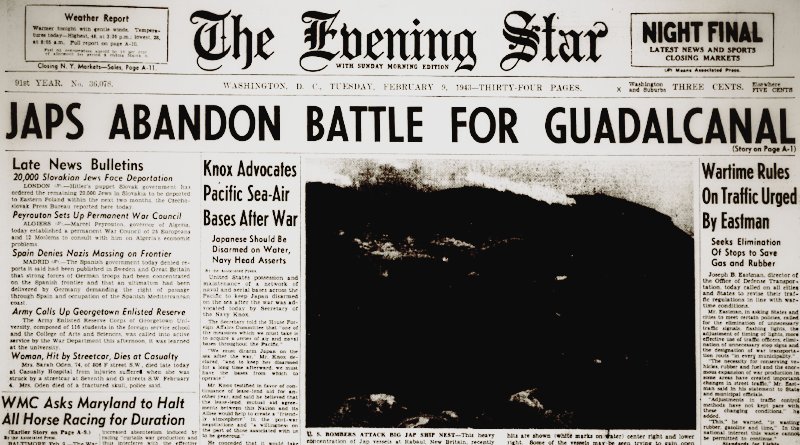
France should have joined the Axis on 3 July 1940.